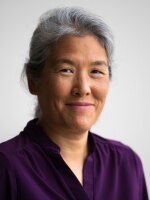State Sen. Ed Murray appeared to be winning the Seattle mayoral race on Tuesday night, with 56 percent of the votes. Mayor Mike McGinn trailed with 43 percent.
The winner hasn’t been declared yet, because Washington voters submit their ballots by mail, which means many of the votes haven’t yet been counted.
McGinn’s strategist John Wyble said earlier on Tuesday that McGinn would not concede if the mayor is within five points of Murray. The mayor did not concede on Tuesday.
[asset-images[{"caption": "Mayor Mike McGinn addresses supporters on Tuesday night after learning of his disappointing result.", "fid": "7111", "style": "card_280", "uri": "public://201311/mcginn-speech.jpg", "attribution": "Credit KUOW Photo/Deborah Wang"}]]Speaking to his supporters on Tuesday night, McGinn said, somewhat deflated, "The votes are in."
Those in the crowd yelled back, "Not all, not all," referring to the votes that haven't been counted.
"Not all," McGinn agreed, "but this is what I’m saying, guys. ... My opponent said he wanted to do what I wanted to do. He wanted to do what you wanted to do. So you all have a job to do. Your job is to hold this city to its ideals."
[asset-audio[{"description": "McGinn's speech to supporters after the first ballot drop.", "fid": "7109", "uri": "npraudio://201311/mcginnSpeechFinish.mp3"}]]This is the third time since 2001 that an incumbent mayor has lost in Seattle, although the last two times followed a political relations fiasco. Mayor Paul Schell lost the primary in 2001, partly because of what was perceived to be the botched handling of the riots during the WTO meeting in 1999.
Mayor Greg Nickels, who succeeded Schell, also failed to emerge from the primary election in 2009, in his bid for third term. Nickels was criticized for how he handled heavy snowfall in Seattle in 2008.
McGinn did make it through the primary, however, to a mayoral race rife with finger pointing, questions about leadership style and the source of campaign contributions.
But for the average voter, the debate may not have included enough substantive conversation about the meat and potato issues that face Seattle citizens: How do we pay to fix our roadways? Where do we funnel new density? Are we as safe as possible in our homes and in public venues?
And sometimes it seemed that the candidates were trying to outdo each other – who would be toughest on business, who was more liberal and who loved bikes the most.
Marcie Sillman interviewed Murray for The Record on these issues.
On Bikes And Transportation
Murray: “On bicycles alone, we have fallen behind other cities, in the number of people who are riding bicycles. I mean, Minneapolis is ahead of us now, and they have snow and ice."
Marcie Sillman to Murray: They’re also flat.
Murray: “They’re flat, yes. Hills would never stand in the way of Seattleites who want to bike. I don’t believe we’ve built a particularly safe system and I think that we have mixed often into situations where you’re stuck between a car door and a car and a bus.”
On Law Enforcement
Murray: “We truly have a rise in crime in certain neighborhoods in certain types of crimes. That has led to a perception that can become a reality in people’s minds and can hurt our tourism industry and can hurt downtown when people in other neighborhoods are afraid to go downtown.”
Marcie Sillman to Murray: Do we need more policing? Is it as simple as that?
Murray: "We had an opportunity when the Obama justice department said, ‘You have a problem with how your police deal with race and how they deal with overuse of force.’ We have spent years under this mayor fighting the Justice Department. … We should have moved early and quickly and reformed the police department. We haven’t."
On The Open Police Chief Position
Murray: “We need to do a national search. We need to identify someone who knows how to change the culture of a police force, who can restore the morale of the police force, which is not particularly high these days, and who can restore the faith of the citizens of the city in their police force.”
On Neighborhoods
Murray: "It’s been pretty much, since the Nickels administration, ‘Centralize downtown.’ I think we should come up with a 21st century version of what we were doing right in the 90s.
"Look at what Vancouver, British Columbia did. They decided the first thing they would do was to build out their pedestrian structure, to create connectivity throughout the city. I think if you start there, you get to what you want.”
Marcie Sillman to Murray: It’s an interesting comparison, because the Vancouver developers were required to pay for a lot of that infrastructure – they have very different laws about when somebody builds a big building, what that somebody has to provide.
Murray: "That’s right … I don’t think that’s a reason to step back."




